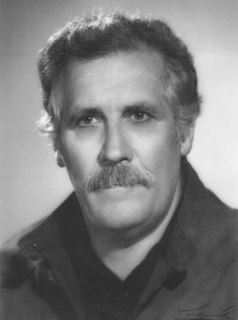
The Fourth International (FI) is a revolutionary socialist international organization consisting of followers of Leon Trotsky, also known as Trotskyists, whose declared goal is the overthrowing of global capitalism and the establishment of world socialism via international revolution. The Fourth International was established in France in 1938, as Trotsky and his supporters, having been expelled from the Soviet Union, considered the Communist International as effectively puppets of Stalinism and thus incapable of leading the international working class to political power. Thus, Trotskyists founded their own competing Fourth International.

Socialism in New Zealand had little traction in early colonial New Zealand but developed as a political movement around the beginning of the 20th century. Much of socialism's early growth was found in the labour movement.
The Workers International to Rebuild the Fourth International (WIRFI) is a Trotskyist international organisation. It was formed and based in the United Kingdom and originally consisted of a remnant of the Workers Revolutionary Party.
Left Shift was a Trotskyist group in Germany, which was the German affiliate of the International Socialist Tendency. In September 2007, Linksruck formally dissolved, and its members regrouped into the Left Party as Marx21 – Network for International Socialism.

The Fourth International Posadist is a Trotskyist international. It was founded in 1962 by J. Posadas, who had been the leader of the Latin America Bureau of the Fourth International in the 1950s, and of the Fourth International's section in Argentina. Between their split from the International Secretariat of the Fourth International in 1962 and Posadas' death in 1981, Posadists developed a strain of communism that included several fringe ideas, which brought them into conflict with more mainstream left-wing groups.
The International Revolutionary Marxist Centre was an international association of left-socialist parties. The member-parties rejected both mainstream social democracy and the Third International.
This article gives an overview of socialism in the Netherlands, including communism and social democracy. It is limited to communist, socialist, social democratic, and democratic socialist parties with substantial support, mainly proved by having had a representation in parliament. The sign ⇒ means a reference to another party in that scheme.
Socialism in Australia dates back at least as far as the late-19th century. Notions of socialism in Australia have taken many different forms including utopian nationalism à la Edward Bellamy, the democratic socialist reformist electoral project of the early Australian Labor Party, and the revolutionary Marxism of parties such as the Communist Party of Australia.
The International Socialist Group (ISG) was a Trotskyist organisation in Britain. It was the British section of the Fourth International (FI) until 2009 when it dissolved into Socialist Resistance.

The International Socialist Organization (ISO) was a Trotskyist group active primarily on college campuses in the United States that was founded in 1976 and dissolved in 2019. The organization held Leninist positions on imperialism and the role of a vanguard party. However, it did not believe that necessary conditions for a revolutionary party in the United States were met; ISO believed that it was preparing the ground for such a party. The organization held a Trotskyist critique of nominally socialist states, which it considered class societies. In contrast, the organization advocated the tradition of "socialism from below." as articulated by Hal Draper. Initially founded as a section of the International Socialist Tendency (IST), it was strongly influenced by the perspectives of Draper and Tony Cliff of the British Socialist Workers Party. It broke from the IST in 2001, but continued to exist as an independent organization for the next eighteen years. The organization advocated independence from the U.S. two-party system and sometimes supported electoral strategies by outside parties, especially the Green Party of the United States.

The Socialist Workers Party (SWP) is a far-left political party in the United Kingdom. Founded as the Socialist Review Group by supporters of Tony Cliff in 1950, it became the International Socialists in 1962 and the SWP in 1977. The party considers itself to be Trotskyist. Cliff and his followers criticised the Soviet Union and its satellites, calling them state capitalist rather than socialist countries.
The Workers Revolutionary Party is a Trotskyist group in Britain once led by Gerry Healy. In the mid-1980s, it split into several smaller groups, one of which retains possession of the name.

Nahuel Moreno was a Trotskyist leader from Argentina. Moreno was active in the Trotskyist movement from 1942 until his death.
The first Revolutionary Socialist League (RSL) was formed in early 1938 by the merger of the Marxist League led by Harry Wicks and the Marxist Group led by C. L. R. James.
The Socialist Workers Party (SWP) is a communist party in the United States. Originally a group in the Communist Party USA that supported Leon Trotsky against Soviet leader Joseph Stalin, it places a priority on "solidarity work" to aid strikes and is strongly supportive of Cuba. The SWP publishes The Militant, a weekly newspaper that dates back to 1928. It also maintains Pathfinder Press.

The International Socialist Tendency (IST) is an international grouping of unorthodox Trotskyist organisations espousing the ideas of Tony Cliff (1917–2000), founder of the Socialist Workers Party (SWP) in Britain. It has sections across 27 countries; however, its strongest presence is in Europe, especially in Britain.
Michael Banda, born Michael Alexander Van Der Poorten, was a Sri Lankan socialist activist best known as the General Secretary of the British Workers Revolutionary Party.

Far-left politics in the United Kingdom have existed since at least the 1840s, with the formation of various organisations following ideologies such as Marxism, revolutionary socialism, communism, anarchism and syndicalism.

International Socialist Alternative is an international association of Trotskyist political parties.







